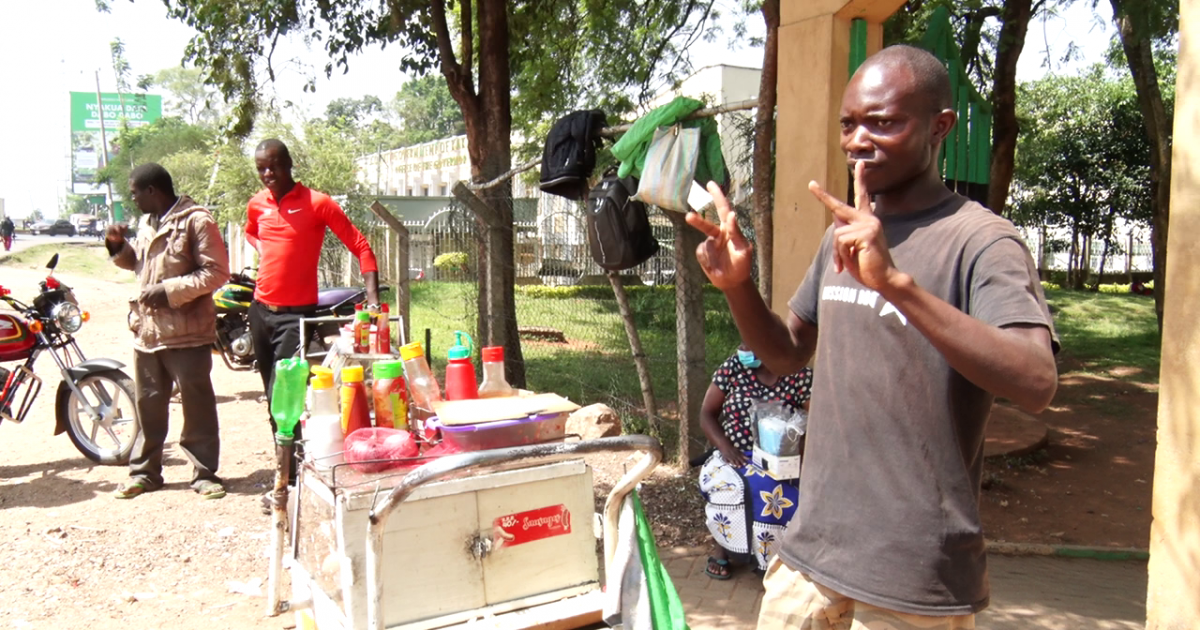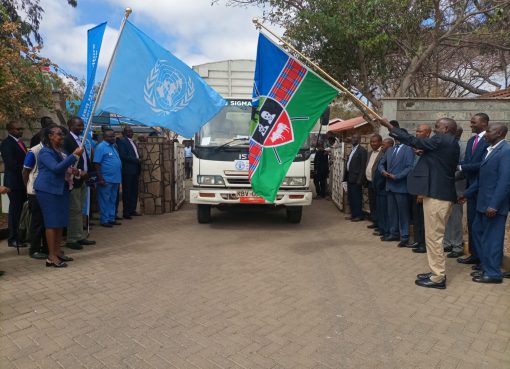A section of youth who are deaf in Kakamega are reaping handsomely from smokies and eggs hawking business despite challenges in communicating with customers.
The group of four pitch tents at the entrance to the Muliro Gardens where they sell to clients visiting the serene park treasured by merry makers and those seeking adventure.
The deaf strategically identified the spot as the best location where they would not need to struggle wooing customers to buy from them.
They say they are determined to work hard and earn a living instead of seeking sympathy and handouts by begging from passersby along the streets.
One of them, 25-year-old James Bunyali, who is a resident of Lurambi says he was born deaf and had to find ways to make a living after dropping out of high school for lack of school fees to proceed with his education.
“This business enables me to take care of my parents,” he says.
Bunyali who sells smokies and eggs says he makes a profit of between Sh1000 to Sh1500 daily.
“We cannot go about begging in the streets from people, we can survive and eat on our own,” he noted.
He says they only need a conducive business environment that is favorable for them and other people living with disabilities since they occasionally brush off with law enforcers, who do not understand sign language. Since they cannot defend themselves verbally during such altercations, they find themselves in hot soup.
In such instances, Bunyali says, they are forced to look for a sign language interpreter who assists them in communicating with the law enforcers, customers and sometimes community members.
One of the sign language interpreters whom they have identified with is Esther Eulolo, who assists them, however she works on contract charging a small fee.
Eulolo has established herself with thorough understanding of sign language becoming one of the sought after to interpret during public events, political rallies and when the deaf seek services in hospitals and other government offices.
Sometimes she has to juggle between priorities. Being the only one they identify with, Eulolo finds herself juggling up as an interpreter for individual deaf persons and during their various encounters when her interpretation becomes handy.
For instance, when KNA visited them at the Muliro Gardens entrance, they had to call her to interpret.
Eulolo was contacted via a video call, however, she was on a queue with another deaf person, who was seeking medication at a private hospital in Kakamega. Since the Doctor had not reported she quickly left to interpret for us before going back.
“I have just left a patient whom I am supposed to interpret to the Doctor, but since the Doctor has not yet arrived I had to come to assist,” she said.
She has with time developed to be flexible in order to support any deaf person who may need her services to interpret while seeking services or when they want to communicate to other people.
Bunyali is a team leader of four businesspersons working around the Muliro Gardens where she also assists a woman who is also deaf and sells face masks at the same place.
She says they decided to operate close to each other to ease communication among themselves and boost confidence when they need to deal with customers who do not understand sign language.
She says their unity has boosted their self-esteem and they feel comfortable working and interacting with other people.
They also have four of their colleagues who ride bodabodas and have identified a place near the Muliro Gardens, a stage where they operate from.
Bunyali disclosed to KNA they all know how to communicate using sign language amongst themselves and normally communicates to customers via simple signals or if further communication is needed they write on a paper.
As they encourage people with disability in Kakamega to work hard and eke out a living from different businesses, the deaf urged the government to avail sign language interpreters in public offices to enable them access vital services.
However the Government through the department of National Council for Persons with Disability has stepped up measures to support the deaf seeking services by training some civil servants on Kenyan Sign Language (KSL).
By Margaret Andeso





